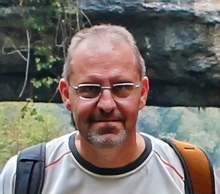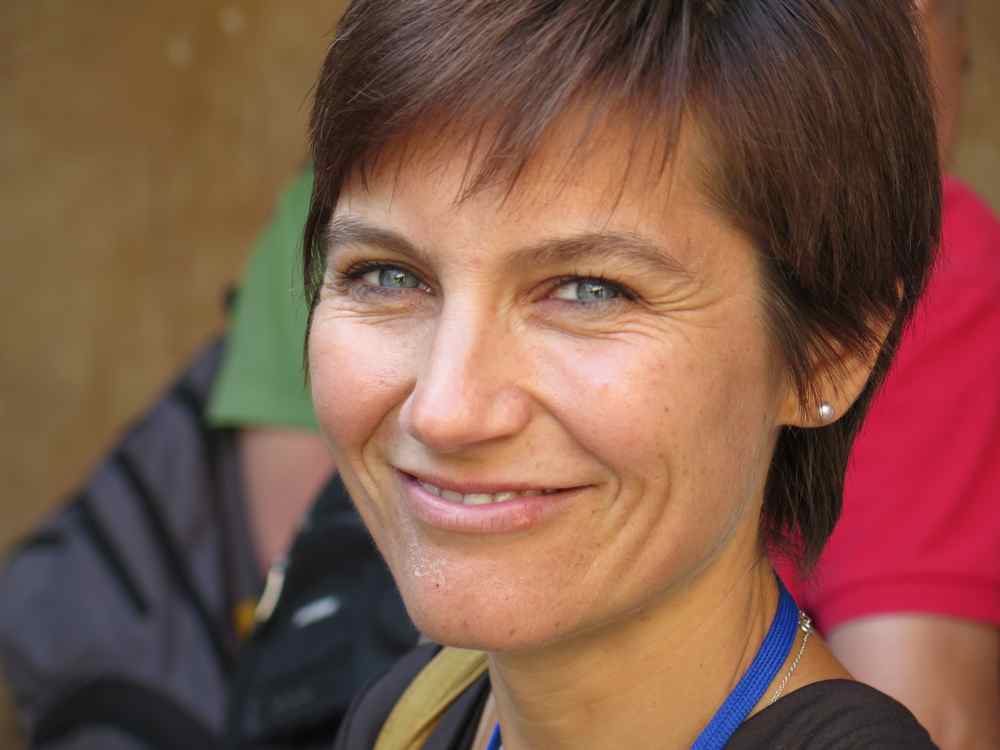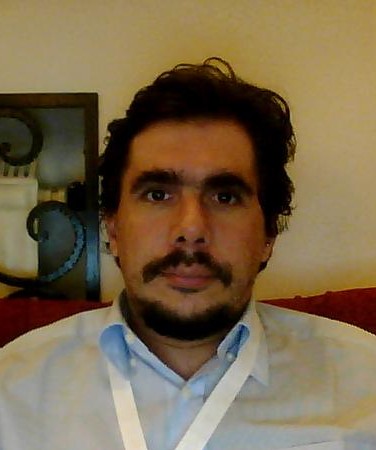Studying at the University of Verona
Here you can find information on the organisational aspects of the Programme, lecture timetables, learning activities and useful contact details for your time at the University, from enrolment to graduation.
Academic calendar
The academic calendar shows the deadlines and scheduled events that are relevant to students, teaching and technical-administrative staff of the University. Public holidays and University closures are also indicated. The academic year normally begins on 1 October each year and ends on 30 September of the following year.
Course calendar
The Academic Calendar sets out the degree programme lecture and exam timetables, as well as the relevant university closure dates..
| Period | From | To |
|---|---|---|
| Primo semestre | Oct 4, 2021 | Jan 28, 2022 |
| Secondo semestre | Mar 7, 2022 | Jun 10, 2022 |
| Session | From | To |
|---|---|---|
| Sessione invernale d'esame | Jan 31, 2022 | Mar 4, 2022 |
| Sessione estiva d'esame | Jun 13, 2022 | Jul 29, 2022 |
| Sessione autunnale d'esame | Sep 1, 2022 | Sep 30, 2022 |
| Session | From | To |
|---|---|---|
| Sessione di laurea estiva | Jul 21, 2022 | Jul 21, 2022 |
| Sessione di laurea autunnale | Oct 13, 2022 | Oct 13, 2022 |
| Sessione di laurea invernale | Mar 16, 2023 | Mar 16, 2023 |
| Period | From | To |
|---|---|---|
| Festa di Tutti i Santi | Nov 1, 2021 | Nov 1, 2021 |
| Festa dell'Immacolata | Dec 8, 2021 | Dec 8, 2021 |
| Festività natalizie | Dec 24, 2021 | Jan 2, 2022 |
| Vacanze Pasquali | Apr 15, 2022 | Apr 19, 2022 |
| FESTA DEL LAVORO | May 1, 2022 | May 1, 2022 |
| Santo Patrono | May 21, 2022 | May 21, 2022 |
| FESTIVITA' DELLA REPUBBLICA | Jun 2, 2022 | Jun 2, 2022 |
| Chiusura estiva | Aug 15, 2022 | Aug 20, 2022 |
Exam calendar
Exam dates and rounds are managed by the relevant Science and Engineering Teaching and Student Services Unit.
To view all the exam sessions available, please use the Exam dashboard on ESSE3.
If you forgot your login details or have problems logging in, please contact the relevant IT HelpDesk, or check the login details recovery web page.
Should you have any doubts or questions, please check the Enrollment FAQs
Academic staff
 rossana.capuani@univr.it
rossana.capuani@univr.it
 rosanna.laking@univr.it
rosanna.laking@univr.it
 giulio.mazzi@univr.it
giulio.mazzi@univr.it

Mazzuoccolo Giuseppe
 giuseppe.mazzuoccolo@univr.it
giuseppe.mazzuoccolo@univr.it
 +39 0458027838
+39 0458027838
 daniela.pianezzi@univr.it
daniela.pianezzi@univr.it

Raffaele Alice
 alice.raffaele@univr.it
alice.raffaele@univr.it
Study Plan
The Study Plan includes all modules, teaching and learning activities that each student will need to undertake during their time at the University.
Please select your Study Plan based on your enrollment year.
1° Year
| Modules | Credits | TAF | SSD |
|---|
| Modules | Credits | TAF | SSD |
|---|
| Modules | Credits | TAF | SSD |
|---|
1 module between the following1 module between the following3 modules among the followingLegend | Type of training activity (TTA)
TAF (Type of Educational Activity) All courses and activities are classified into different types of educational activities, indicated by a letter.
Numerical modelling and optimization (2021/2022)
The teaching is organized as follows:
Learning outcomes
The aim of the first module is to deepen the knowledge and skills especially in the modern theory of dynamical systems and give the student a solid appreciation of the deep connections between mathematics and other scientific disciplines, both in terms of the mathematical problems that they inspire and the important role that mathematics plays in scientific research and industry. Mathematical software tools, and others, will be used to implement algorithms for the solution of the real world problems studied during the course. At the end of the course the student is expected to be able to complete professional and technical tasks of a high level in the context of mathematical modelling and computation, both working alone and in groups. In particular the student will be able to write a model of a real problem, to recognise the effective parameters and analyse the model and its possible implications. The second module wants to provide sufficient theoretical and numerical background for the optimal control of dynamical systems. Such problems will be developed by means of real application examples, and recent research studies. At the end of the course students will be able to decide which numerical method is suitable for the solution of some specific optimal control problems. He/She will be able to provide theoretical results on the controllability and stability of certain optimal control problem and numerical methods. He/She will be able to develop his/her own code, and capable choose the appropriate optimization method for each application shown during the course.
Program
The entire course will be available online. In addition, a number of the lessons/all the lessons (see the course
schedule) will be held in-class.
The course presents different differential models and their control with application in biology, economics and robotics.
The analysis of these models will be enached by the study of theoretical aspects, and the development of several computational methods.
The course is divided in two parts, for the detail program refer to the dedicated page
MODELLING SEMINAR
* Modelling of complex and multi-agent systems (swarming, opinion formaton, Network, and (non-)holonomic systems).
* Bifurcation analysis, and geometric control.
NUMERICAL OPTIMIZATION
*Introduction to Optimal control and numerical methods: direct and indirect methods, dynamic programming,
* Model-Predictive Control for high-dimensional Systems
*Examples and exercises with Matlab/Octave.
The program is in accordance with the ECMI standards (European Consortium for Mathematics in Industry, https://ecmiindmath.org/)
Bibliography
Examination Methods
The student is expected to demonstrate the ability to mathematically formalize and solve models used in several scientific discipline, using, adapting and developing the models and advanced methods discussed during the lectures. To that end the final evaluation will consist in a written and oral exam.
Written exam: Questions and exercises the solution could require the use of computer.
Oral exam: Project and discussion of the written exam with questions. The subject of the project should be decided together with the teacher.
The assessment methods could change according to the academic rules.
The online exam is granted for all the students will require it during the academic year 2020/21.
Type D and Type F activities
Le attività formative di tipologia D sono a scelta dello studente, quelle di tipologia F sono ulteriori conoscenze utili all’inserimento nel mondo del lavoro (tirocini, competenze trasversali, project works, ecc.). In base al Regolamento Didattico del Corso, alcune attività possono essere scelte e inserite autonomamente a libretto, altre devono essere approvate da apposita commissione per verificarne la coerenza con il piano di studio. Le attività formative di tipologia D o F possono essere ricoperte dalle seguenti attività.
1. Insegnamenti impartiti presso l'Università di Verona
Comprendono gli insegnamenti sotto riportati e/o nel Catalogo degli insegnamenti (che può essere filtrato anche per lingua di erogazione tramite la Ricerca avanzata).
Modalità di inserimento a libretto: se l'insegnamento è compreso tra quelli sottoelencati, lo studente può inserirlo autonomamente durante il periodo in cui il piano di studi è aperto; in caso contrario, lo studente deve fare richiesta alla Segreteria, inviando a carriere.scienze@ateneo.univr.it il modulo nel periodo indicato.
2. Attestato o equipollenza linguistica CLA
Oltre a quelle richieste dal piano di studi, per gli immatricolati dall'A.A. 2021/2022 vengono riconosciute:
- Lingua inglese: vengono riconosciuti 3 CFU per ogni livello di competenza superiore a quello richiesto dal corso di studio (se non già riconosciuto nel ciclo di studi precedente).
- Altre lingue e italiano per stranieri: vengono riconosciuti 3 CFU per ogni livello di competenza a partire da A2 (se non già riconosciuto nel ciclo di studi precedente).
Tali cfu saranno riconosciuti, fino ad un massimo di 6 cfu complessivi, di tipologia F se il piano didattico lo consente, oppure di tipologia D. Ulteriori crediti a scelta per conoscenze linguistiche potranno essere riconosciuti solo se coerenti con il progetto formativo dello studente e se adeguatamente motivati.
Gli immatricolati fino all'A.A. 2020/2021 devono consultare le informazioni che si trovano qui.
Modalità di inserimento a libretto: richiedere l’attestato o l'equipollenza al CLA e inviarlo alla Segreteria Studenti - Carriere per l’inserimento dell’esame in carriera, tramite mail: carriere.scienze@ateneo.univr.it
3. Competenze trasversali
Scopri i percorsi formativi promossi dal TALC - Teaching and learning center dell'Ateneo, destinati agli studenti regolarmente iscritti all'anno accademico di erogazione del corso https://talc.univr.it/it/competenze-trasversali
Modalità di inserimento a libretto: non è previsto l'inserimento dell'insegnamento nel piano di studi. Solo in seguito all'ottenimento dell'Open Badge verranno automaticamente convalidati i CFU a libretto. La registrazione dei CFU in carriera non è istantanea, ma ci saranno da attendere dei tempi tecnici.
4. Periodo di stage/tirocinio
Oltre ai CFU previsti dal piano di studi (verificare attentamente quanto indicato sul Regolamento Didattico): qui informazioni su come attivare lo stage.
Insegnamenti e altre attività che si possono inserire autonomamente a libretto
| years | Modules | TAF | Teacher | |
|---|---|---|---|---|
| 1° | Genetics | D |
Massimo Delledonne
(Coordinator)
|
|
| 1° 2° | Algorithms | D |
Roberto Segala
(Coordinator)
|
|
| years | Modules | TAF | Teacher |
|---|---|---|---|
| 1° 2° | Algorithms | D |
Roberto Segala
(Coordinator)
|
| 1° 2° | LaTeX Language | D |
Enrico Gregorio
(Coordinator)
|
| 1° 2° | Organization Studies | D |
Serena Cubico
(Coordinator)
|
| 1° 2° | History and Didactics of Geology | D |
Guido Gonzato
(Coordinator)
|
| years | Modules | TAF | Teacher | |
|---|---|---|---|---|
| 1° 2° | Advanced topics in financial engineering | F | Not yet assigned | |
| 1° 2° | ECMI modelling week | F | Not yet assigned | |
| 1° 2° | ESA Summer of code in space (SOCIS) | F | Not yet assigned | |
| 1° 2° | Google summer of code (GSOC) | F | Not yet assigned | |
| 1° 2° | Mathematics mini courses |
Sisto Baldo
(Coordinator)
|
||
| 1° 2° 3° | Python programming language | D |
Giulio Mazzi
(Coordinator)
|
|
Career prospects
Module/Programme news
News for students
There you will find information, resources and services useful during your time at the University (Student’s exam record, your study plan on ESSE3, Distance Learning courses, university email account, office forms, administrative procedures, etc.). You can log into MyUnivr with your GIA login details: only in this way will you be able to receive notification of all the notices from your teachers and your secretariat via email and soon also via the Univr app.
Double degree
The University of Verona, through a network of agreements with foreign universities, offers international courses that enable students to gain a Double/Joint degree at the time of graduation. Indeed, students enrolled in a Double/Joint degree programme will be able to obtain both the degree of the University of Verona and the degree issued by the Partner University abroad - where they are expected to attend part of the programme -, in the time it normally takes to gain a common Master’s degree. The institutions concerned shall ensure that both degrees are recognised in the two countries.
Places on these programmes are limited, and admissions and any applicable grants are subject to applicants being selected in a specific Call for applications.
It's online Erasmus + - double joint degree a.y. 2024/2025
The latest Call for applications for Double/Joint Degrees at the University of Verona is available now!
For the presentation of the LA and subsequent recognition of CFUs, please refer to the International Mobility Regulations.
Documents
| Title | Info File |
|---|---|
|
|
pdf, it, 461 KB, 24/11/23 |
|
|
pdf, it, 361 KB, 23/02/24 |
Alternative learning activities
In order to make the study path more flexible, it is possible to request the substitution of some modules with others of the same course of study in Mathematics at the University of Verona (if the educational objectives of the modules to be substituted have already been achieved in the previous career), or with others of the course of study in Mathematics at the University of Trento.Documents
| Title | Info File |
|---|---|
|
|
pdf, it, 167 KB, 27/08/21 |
|
|
pdf, it, 44 KB, 30/08/21 |
|
|
pdf, it, 113 KB, 30/08/21 |
Attendance
As stated in the Teaching Regulations for the A.Y. 2022/2023, except for specific practical or lab activities, attendance is not mandatory. Regarding these activities, please see the web page of each module for information on the number of hours that must be attended on-site.
Career management
Student login and resources
Graduation
Deadlines and administrative fulfilments
For deadlines, administrative fulfilments and notices on graduation sessions, please refer to the Graduation Sessions - Science and Engineering service.
Need to activate a thesis internship
For thesis-related internships, it is not always necessary to activate an internship through the Internship Office. For further information, please consult the dedicated document, which can be found in the 'Documents' section of the Internships and work orientation - Science e Engineering service.
Final examination regulations
Upon completion of the Master’s degree dissertation students are awarded 32 CFU. The final examination consists of a written dissertation on a specific topic agreed with a supervising professor and presented to a commission (Dissertation Committee).
The dissertation can be high-level theoretical or experimental (in the latter case, it may focus on either basic or applied research), it can deal with a theoretical topic or propose the resolution of a specific problem, or description of a work project, and may be carried out at universities, research institutions, schools, laboratories and companies in the framework of internships, traineeships, study stays in Italy and abroad. The dissertation must be original and written by the student under the guidance of a Supervisor. At the request of the student, the dissertation may be written and presented in Italian.
Professors belonging to the Mathematics Teaching Committee, the Department of Computer Science, and any associated departments may be appointed as Supervisors, as well as any professors from the University of Verona whose area of interest (SSD - Scientific-disciplinary Sector) is included in the teaching regulations of the degree programme.
Students may take the final exam only if meeting all requirements set by the School of Sciences and Engineering.
The Master's degree in Mathematics is obtained by successfully passing the final examination and thus earning the 120 CFU included in the study plan.
The material submitted by the student for the final examination will be examined by the Dissertation Committee, which comprises three professors, possibly including the Supervisor, and appointed by the President of the Teaching Committee. The final examination will be assessed based on the following criteria: the student’s performance during the entire study programme, the knowledge acquired during the dissertation work, their understanding of the topic and autonomy of judgment, their ability to apply such knowledge, and communicate effectively and fully all the outcomes of the work and the main results obtained.
The final examination and the degree ceremony will be carried out, in one of the four graduation sessions throughout the academic year, by the Final Examination Committee appointed by the President of the Teaching Committee, and made up of a president and at least four members chosen from among the professors of the University.
For further information, please refer to the Final examination regulations.
Documents
| Title | Info File |
|---|---|
|
|
pdf, it, 31 KB, 02/11/22 |
|
|
pdf, en, 31 KB, 02/11/22 |
|
|
pdf, it, 171 KB, 20/03/24 |
List of theses and work experience proposals
| theses proposals | Research area |
|---|---|
| Controllo di sistemi multiagente | Calculus of variations and optimal control; optimization - Hamilton-Jacobi theories, including dynamic programming |
| Controllo di sistemi multiagente | Calculus of variations and optimal control; optimization - Manifolds |
| Controllo di sistemi multiagente | Calculus of variations and optimal control; optimization - Optimality conditions |
| Formule di rappresentazione per gradienti generalizzati | Mathematics - Analysis |
| Formule di rappresentazione per gradienti generalizzati | Mathematics - Mathematics |
| Mathematics Bachelor and Master thesis titles | Various topics |
| Stage | Research area |
|---|---|
| Internship proposals for students in mathematics | Various topics |


























